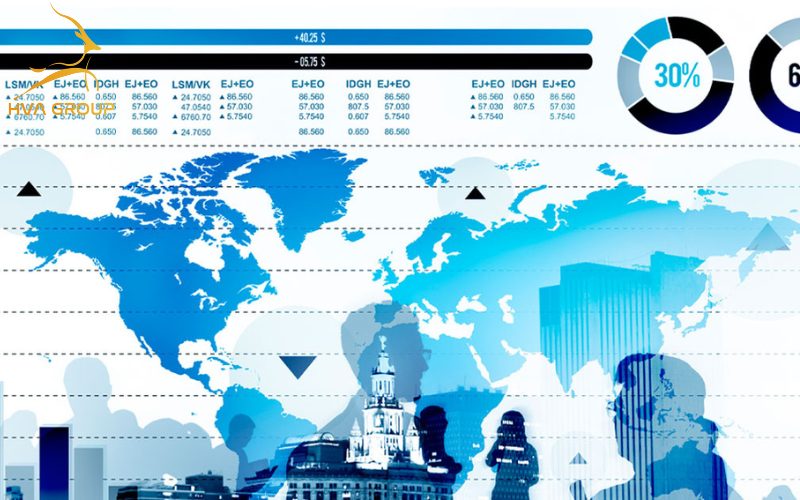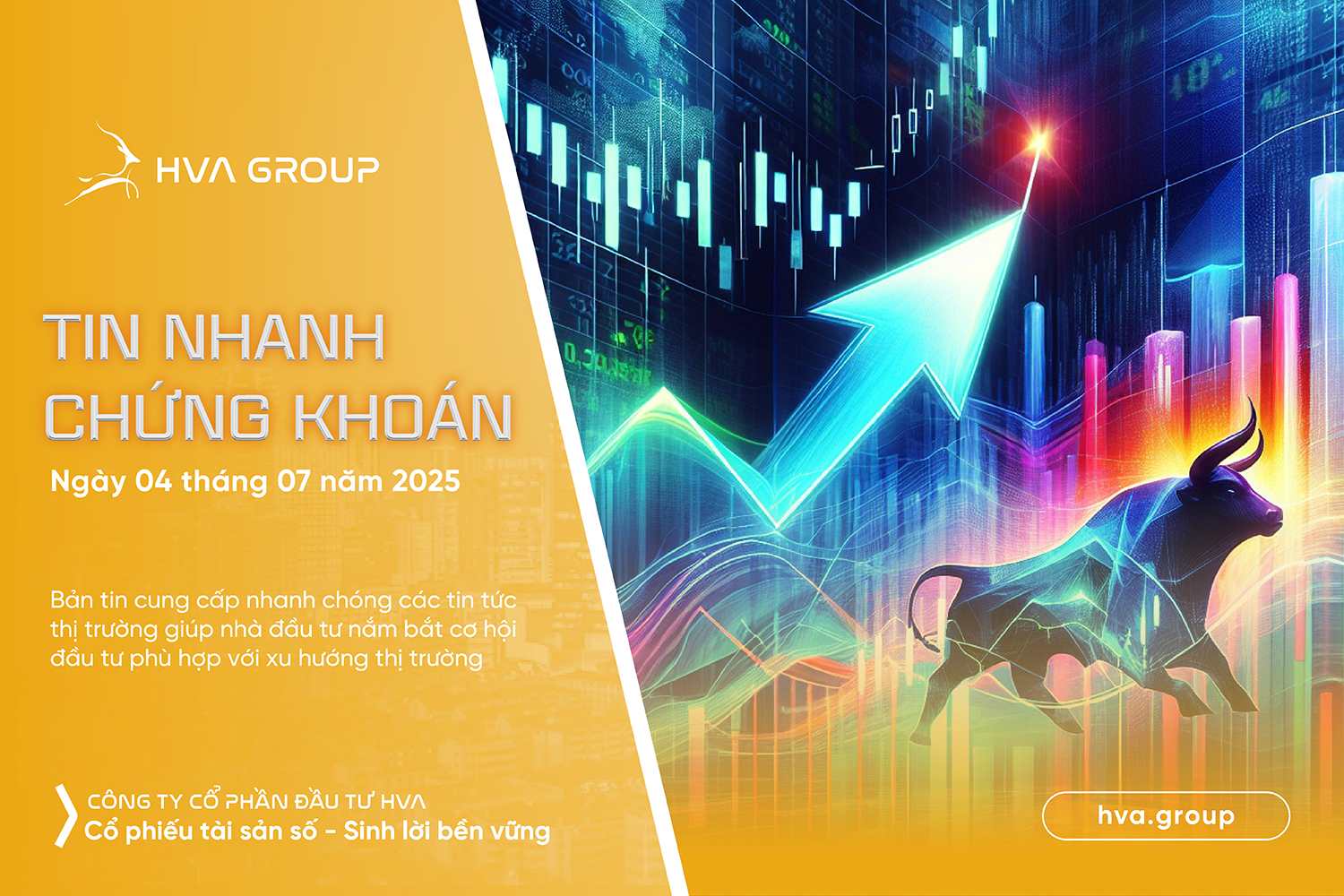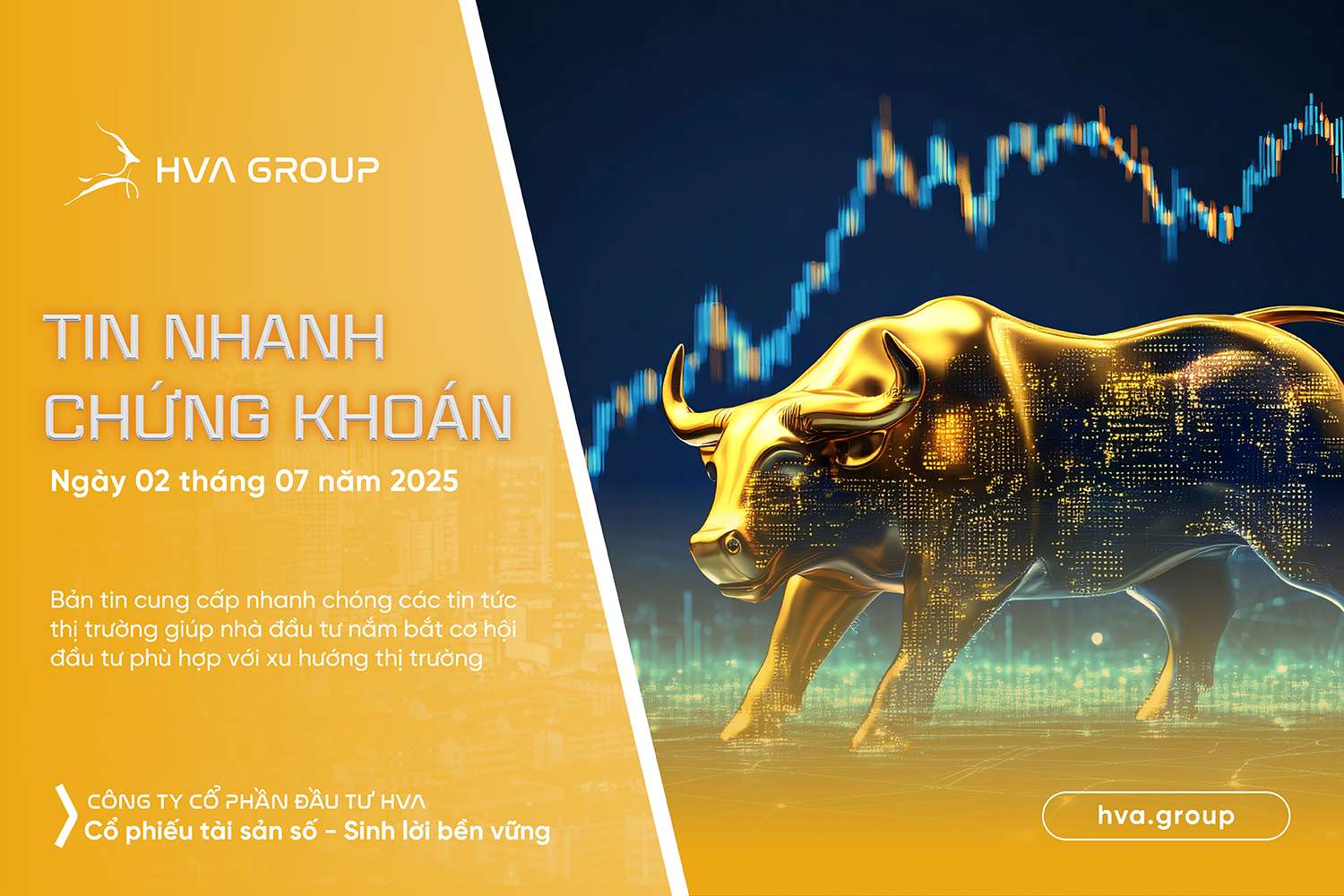
Stock market reflect luck economic dynamics. The fluctuations of stock indices, such as VN-Index, Dow Jones or Nikkei, become a bulletin about the health of the global economy. The stock market is not only a place for trading, but also a window opening a vision of the future of economies and businesses around the world.
1. What is the stock market?
Stock market concept is a group of buyers and sellers of shares (or securities) that represent ownership in a business; it can include shares listed on a public stock exchange, or shares that are traded privately, such as shares of a private company sold to investors through crowdfunding platforms. Investments in the stock market are mostly made through stockbrokers and electronic trading platforms.
>>> See more articles: Learn about stock order types: ato, atc, lo, mp
There are 60 stock exchange worldwide. Of these, 16 exchanges have a market capitalization of $1 trillion or more, accounting for 87% of the world's market capitalization. Apart from the Australian Securities Exchange, these 16 exchanges are located in North America, Europe and Asia.
The scale of global stock market by 2023, based on data from the World Federation of Exchanges (WFE) and the Securities Industry and Financial Markets Association (SIFMA). With a market capitalization of $46.2 trillion, the United States has the largest share of the global equity market, equivalent to 42.5%. This is nearly four times larger than the second-largest market, the European Union (EU) ($12.1 trillion, equivalent to 11.1%). China has the third-largest equity market in the world, with a market capitalization of $11.5 trillion, equivalent to 10.6%. It is followed by Japan ($5.8 trillion), Hong Kong ($4.3 trillion), the United Kingdom ($3.2 trillion), Canada ($3 trillion), Australia ($1.7 trillion), and Singapore ($600 billion).

Chart of the size of the global stock market in 2023
>>> See more articles: How to handle margin calls for stock investors
2. History of the formation of the world stock market
In the late 15th century, Antwerp (Belgium) emerged as a center of international trade. Merchants took advantage of the anticipation of rising prices of certain commodities and traded them for profit. At the same time, basic bond trading also began to appear.
In the early 16th century, an English official observed this model in Belgium and proposed the establishment of an exchange in London, England, which later became known as the London Stock Exchange. Similar exchanges were later established in France, Germany, and northern Europe.
These market trading models have grown stronger with the participation of many members and diversified content. Their nature has led to the division into many different markets such as Commodity Market, Foreign Exchange Market, Futures Market and Stock Market, each market has its own characteristics that are convenient for participants.
Some important events of World Securities:
- 1611: The first modern stock exchange in Amsterdam.
- In the late 1700s, in New York, the Buttonwood Agreement marked the formation of the New York Stock Exchange, one of the top international stock exchanges the world's largest and most influential.
- 1929: The US stock market crashes after the “Roaring 20s.”
- 1971: Trading begins on the NASDAQ stock exchange.
- 1987: Black Monday, the day the world stock market was greatly affected.
- Late 1990s – Early 2002s: The “Dotcom Bubble” with the bursting of the bubble in technology stocks.
- 2008: Global financial crisis.

Stock exchanges The world's largest stock exchanges, such as the Amsterdam, London, and New York Stock Exchanges, have contributed significantly to the formation and development of the world's stock market. Today, trading on the stock market has become easy for both individual and institutional investors, with many different types of investments other than stocks.
3. Classification of stock market
Primary stock market: is where securities are issued for the first time (IPO). The purpose of the primary market is to provide capital to issuers. Most buyers in the primary market are large organizations or investment funds. For example, at the end of 2019, Yeah1 (YEG) issued more than 30 million shares at an opening price of VND 300,000/share. Thus, the issuance of 30 million YEG shares was made for the first time in the primary market.
Secondary stock market: is the market for trading and exchanging securities that have been issued in the primary market. The secondary market creates liquidity for securities, with the purpose of making profits, moving capital flows or social assets. Therefore, no new securities are created, but only the ownership of securities is transferred. For example: 30 million YEG shares after issuance are traded by investors at different prices. Thus, this buying and selling takes place in the secondary market.
The primary market can be considered as a “wholesale market” that provides products (securities) at original prices. The secondary market is the small retail markets, supermarkets, and stores where securities are traded and bought and sold at constantly changing prices.
4. Securities participants
There are always buyers and sellers in the market, so who are they? Besides them, are there any other participants in the stock market?
– Publisher
- Government and local authorities: are the issuers of Government and Local Bonds. These are safe securities with almost absolute payment guarantees from the Government. Unless the national Government defaults on its debt (like Greece in 2012), that is a different story.
- Companies that want to raise capital: companies issue stocks or bonds to raise capital for production and business. This type of security is highly risky because price fluctuations depend on many factors.
– Investors are the ones who provide capital to the stock market. There are two types of investors that you need to distinguish.
- Individual investors: this group usually makes up the majority of the market. They can be a third-year student, an office worker starting to invest, or anyone with idle money participating in the stock market. The common point of individual investors is that they often do not have many advantages in terms of information or financial potential. However, they can flexibly change their investment portfolio with small capital and have high autonomy in their decisions.
- Institutional investors: are institutions that invest in securities in large volumes. They are banks, financial companies, insurance companies, social insurance funds, etc. that participate and often have a lot of information, strong financial potential, and a long-term investment strategy. But no matter how big a shark is, it cannot be as flexible as small fish. In fact, the decisions of organizations always take much more time and trouble than those of individual investors. On the other hand, the investment volume is large, so any wrong decision must be paid for with significant losses.
– Intermediary brokers, including securities companies, securities investment funds and financial intermediaries. In which, securities companies perform the role of intermediary brokers in buying and selling securities. In addition, securities companies also provide consulting and perform a number of other related services.
– Relevant organizations with a management role to ensure that “players” comply with the pre-determined “rules of the game”. In Vietnam, the highest securities market management agency is the Ministry of Finance. Next is the State Securities Commission (SSC), the Stock Exchanges (HOSE and HNX). Next is the Vietnam Securities Depository (VSD) which plays the role of storing information about securities. In addition, there are other organizations such as: Association of Securities Business, credit rating companies, securities sponsoring organizations, etc.

Participants in the stock market
5. Functions of the stock market
Function of stock market plays an important role in the financial and economic system, bringing many important benefits as follows:
– Mobilizing investment capital: The stock market is an effective place to mobilize capital for the State and enterprises without going through banks. By issuing stocks or bonds, the issuer can collect the necessary funds to serve investment, production and business activities. Thereby, the stock market creates an effective capital flow, supporting the development of the economy.
– Measure of economic health: The stock market is a barometer of the economy. Market movements can reflect investors’ optimism or pessimism about the economic outlook. It is also an important tool for governments to adjust economic policy, especially through the use of bonds and derivatives markets.
– Evaluating business performance: The stock market provides a basis for investors to evaluate the performance of businesses. Transparency in information and easy comparison between businesses in the same industry help investors make informed decisions.
– Creating liquidity: The stock market has increased liquidity for trading products. Buying and selling stocks and bonds has become easier with the participation of many investors, facilitating transactions and reducing risks related to liquidity.
– Transparent investment environment: The stock market, receiving protection from the State, creates a transparent and safe investment environment. This helps investors feel secure when investing and promotes market development.
– High profit potential: The stock market offers many investment options, from stock surfing to bonds, allowing investors to choose according to their capital and expected profits. This creates diversity and flexibility in investment options.
6. Operating principles of the stock market
Stock market operate according to four principles stipulated by law in the Securities Law. Specifically, according to Article 5 of the Securities Law No. 54/2019/QH14 dated November 26, 2019, there are 4 principles of operation on securities and the securities market, including:
“Article 5. Principles of securities and securities market operations
- Respect ownership rights and other rights to assets in securities and securities market activities; the right to freely trade, invest, do business and provide securities services of organizations and individuals.
- Fair, open, transparent.
- Protect the legitimate rights and interests of investors.
- Take responsibility for your own risks.”

7. The role of securities in the economy
The role of the stock market (Stock market) in the economy is undeniable in the process of global economic development. Fluctuations in the stock market are not only a factor affecting the economy but also have a great impact on the investment decisions of investors. The stock market is an important capital channel, bringing investment opportunities to the public.
The role of the stock market for investors is undeniable. The stock market offers a wide range of investment products, from stocks to bonds, helping investors diversify their portfolios and manage risks. Choosing between different types of securities allows investors to adjust their investment strategies to suit their financial goals and risk appetite. Participating in the stock market is a simple and flexible process, suitable for both small investors and large-capitalized institutions. This helps create an effective investment channel, making it easier for investors to achieve profits compared to traditional investment channels.
For businesses, the stock market plays an important role in raising capital through the issuance of shares or bonds. This helps businesses avoid the pressure of borrowing from banks at high interest rates. Businesses with securities listed on the stock market also achieve higher prestige and better liquidity, helping to attract capital from the international market and compete more strongly. The stock market is also a place to evaluate the value of businesses through stock price indexes. The formation of a business's stock price reflects its current business performance and future prospects. This encourages businesses to improve operational efficiency and maximize business value.
For the economy, the stock market creates highly liquid instruments, helping to accumulate and distribute capital flexibly. It is also a “barometer” of the economy, forecasting future economic prospects through fluctuations in stock prices. Mobilizing financial resources from the stock market also helps the Government meet development needs without inflationary pressures. For Vietnam, the stock market also plays an important role in the process of equitizing enterprises and building a balanced and effective capital market structure.
Conclusion on the stock market
Stock market increasingly demonstrate its role in the economic development of each country. This is where the Government and businesses attract large long-term capital flows for the national economy, while also helping the public have more investment opportunities. In Vietnam, the stock market has experienced many fluctuations but has always affirmed its role in promoting economic development.
The stock market is a great benefit to investors. It allows them to make profits from buying and selling companies with growth potential. At the same time, the stock market also brings transparency and fairness in determining the value of companies.
In addition, the stock market also plays an important role in stabilizing and developing the economy. When businesses are able to raise capital through listing shares or issuing bonds, they can gather the capital needed to expand their business operations and create new jobs.
Source: Onstocks








